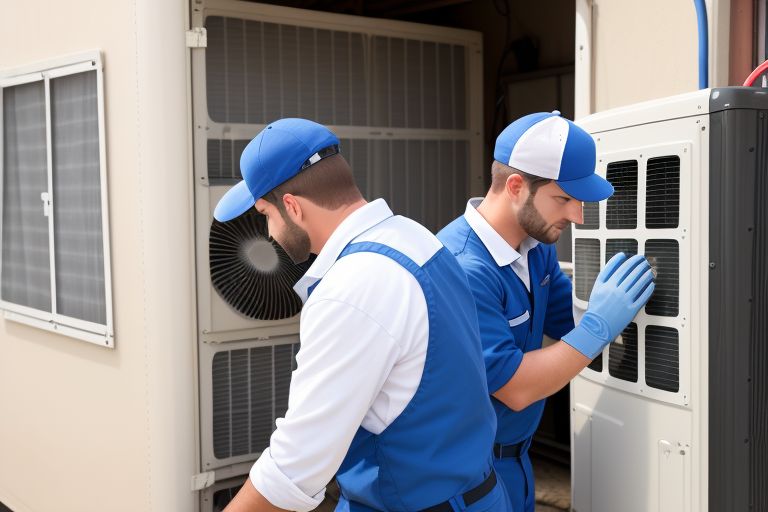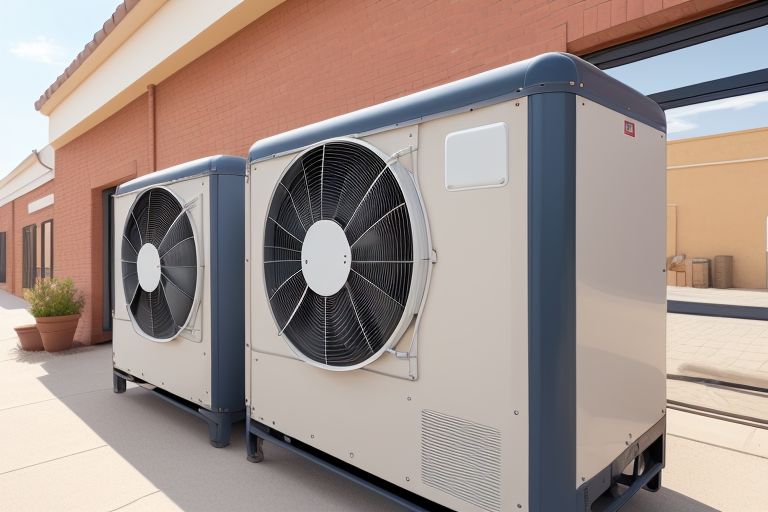Importance of Reliable Cooling for Retail Environments
Retail stores in Malaysia face unique challenges due to the country’s tropical climate, where temperatures often exceed 30°C and humidity levels hover around 80%. A dependable air conditioner for retail store environments is not just a luxury—it’s a necessity. Customers expect a comfortable shopping experience, and excessive heat or stuffiness can drive them away, reducing dwell time and impacting sales. Studies show that shoppers are likely to spend up to 20% more time in a store with optimal cooling, directly influencing purchase decisions. Beyond customer comfort, air conditioning maintains a pleasant working environment for staff, boosting productivity and reducing fatigue. For retail managers, investing in a high-quality cooling system means balancing energy efficiency with performance to keep operational costs in check.
Maintaining these systems requires specialized expertise. Retail spaces often have open layouts, high foot traffic, and large glass windows, which increase cooling demands. A poorly maintained unit can lead to uneven temperatures, higher electricity bills, or even system breakdowns during peak shopping hours. This is where professional maintenance becomes critical, ensuring that every unit operates at peak efficiency.
Why Retail Shops Need Tailored Cooling Solutions
The design of air conditioning for retail shops must account for the specific needs of each store. For instance, a boutique clothing store in Kuala Lumpur’s Bukit Bintang district may require a sleek, ceiling-mounted cassette unit to blend with its aesthetic, while a larger supermarket in Penang might need a ducted system to cover a wider area. These systems must handle fluctuating crowds—think weekend rushes or festive seasons like Hari Raya—without compromising performance. Retail shops also face the challenge of heat-generating equipment, such as display lighting or refrigeration units, which add to the cooling load.
Tailored solutions go beyond installation. Retail environments demand units with precise temperature control to maintain a consistent 22–24°C, as recommended for commercial spaces in Malaysia. Advanced features like variable refrigerant flow (VRF) systems allow shop owners to adjust cooling in different zones, ensuring energy isn’t wasted in low-traffic areas. Choosing the right system involves assessing store size, layout, and customer flow, which is why expert consultation is invaluable for long-term savings and comfort.

Role of Professional Maintenance in Retail Cooling
An air conditioning service company plays a pivotal role in keeping retail cooling systems in top shape. Regular maintenance prevents issues like clogged filters, refrigerant leaks, or drainage problems, which can disrupt operations. In Malaysia, where air conditioners run almost year-round, dust and humidity accelerate wear and tear. A professional service provider conducts thorough inspections, cleaning evaporator coils, checking electrical components, and ensuring proper airflow. This proactive approach can extend a unit’s lifespan by up to 30%, according to industry estimates.
For retail stores, downtime is costly. A malfunctioning air conditioner during a busy weekend can frustrate customers and harm a shop’s reputation. Service companies offer preventive maintenance plans tailored to retail schedules, often performing checks during off-hours to avoid disruption. They also provide rapid response for repairs, minimizing losses. Some providers use diagnostic tools to detect inefficiencies early, such as pressure imbalances or thermostat errors, saving retailers from skyrocketing energy bills.
Choosing the Right Cooling Partner in Malaysia
When selecting air conditioning services Malaysia, retail owners must prioritize experience and reliability. A reputable provider understands the nuances of commercial cooling, from handling high-capacity systems to complying with Malaysia’s energy efficiency regulations, like those set by the Energy Commission (Suruhanjaya Tenaga). Look for companies with a proven track record in retail settings, as they’ll be familiar with the demands of spaces like shopping malls, standalone shops, or chain stores across cities like Johor Bahru or Kuching.
Transparency is another key factor. Top service providers offer clear pricing with no hidden fees, providing upfront quotes for installations, repairs, or maintenance packages. They should also carry certifications for handling refrigerants like R32, which is increasingly common in eco-friendly units. Customer reviews can reveal a company’s reliability—check for feedback on response times and service quality. A strong after-sales support system, including warranties and 24/7 helplines, ensures peace of mind for busy retail managers.
Energy Efficiency and Cost Savings for Retail Cooling
Energy costs are a major concern for Malaysian retailers, with commercial electricity tariffs averaging RM 0.45 per kWh. Inefficient air conditioning can account for up to 60% of a store’s energy consumption, especially in spaces with large cooling demands. Modern units with inverter technology adjust compressor speeds to match cooling needs, reducing energy waste. For example, a 3-ton inverter unit can save up to 40% on electricity compared to non-inverter models, making it ideal for retail environments.
Service companies enhance these savings through regular tune-ups. Cleaning filters and coils improves airflow, allowing units to cool faster and use less power. Some providers recommend smart thermostats that integrate with store management systems, letting owners monitor usage remotely. For instance, scheduling cooling to ramp up before peak hours ensures comfort without running units unnecessarily overnight. Retailers can also explore government incentives for energy-efficient upgrades, which some service providers help facilitate.
Health and Air Quality in Retail Spaces
Beyond temperature, air conditioning impacts indoor air quality (IAQ), a growing concern in Malaysia’s urban retail hubs. High foot traffic introduces dust, pollutants, and allergens, which can accumulate in poorly maintained units. This not only affects customer health but also risks employee absenteeism. Advanced air conditioners with built-in filtration systems, like those using HEPA or plasma ion technology, trap particles and neutralize bacteria, creating a cleaner shopping environment.
Professional service providers prioritize IAQ by sanitizing units during maintenance. Chemical washes remove mold and mildew from coils, while UV light treatments in some systems prevent microbial growth. For retail stores, this translates to fewer complaints about stuffy air and a better brand image. During flu seasons or post-pandemic recovery, clean air reassures customers, encouraging repeat visits. Service companies may also advise on ventilation strategies, such as integrating fresh air intakes, to balance cooling with air circulation.
Future-Proofing Retail Cooling Systems
As Malaysia’s retail sector grows, with new malls and boutique stores emerging, cooling technology is evolving. Smart air conditioners with IoT integration allow remote diagnostics, alerting service teams to issues before they escalate. Retail chains are adopting centralized systems that manage multiple stores from one platform, streamlining maintenance. Eco-friendly refrigerants like R32 and R410A are replacing older, ozone-depleting options, aligning with global sustainability goals.
Partnering with a forward-thinking service provider ensures retailers stay ahead. These companies offer upgrade consultations, recommending systems that meet future energy standards or integrate with renewable energy sources like solar. For instance, a store in Penang could pair its air conditioning with solar panels to cut costs, with service teams handling the technical integration. Staying proactive with maintenance and upgrades keeps retail spaces competitive in a market where customer experience is king.


